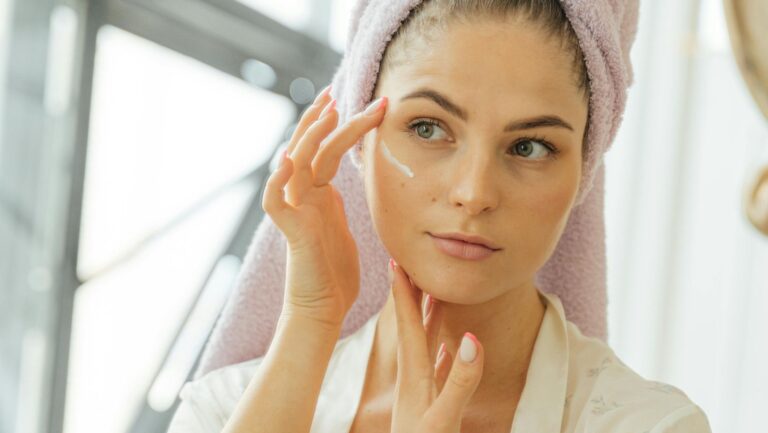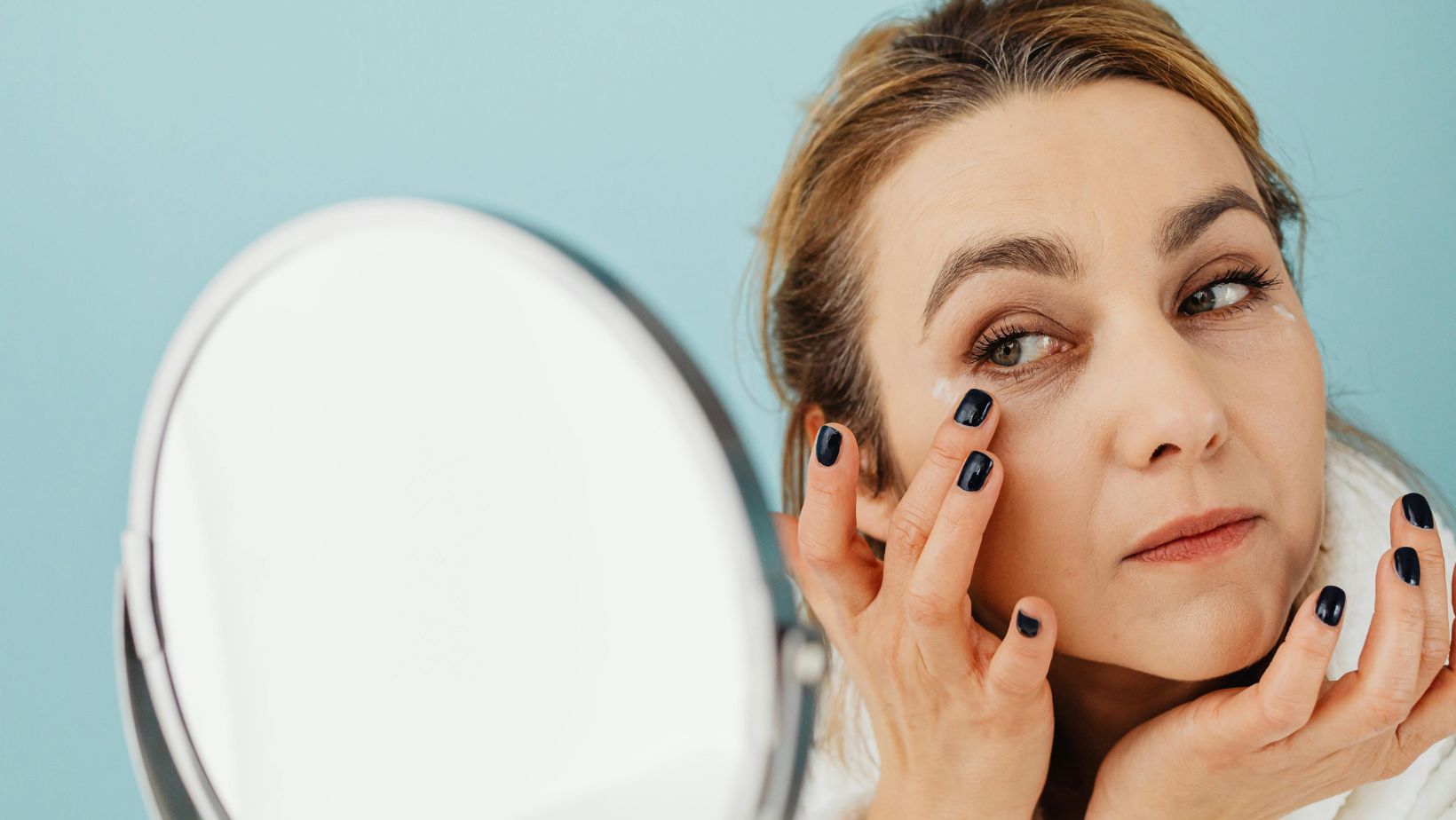The skin around the eyes is about 10 times thinner than the rest of the face, making it particularly vulnerable to environmental stressors, dehydration, and fatigue. It has fewer sebaceous glands, meaning it dries out faster and loses elasticity over time. Combined with constant movement from blinking and facial expressions, this area is prone to early signs of aging.
Moreover, lifestyle factors such as sleep deprivation, digital eye strain, pollution, and even diet can all exacerbate concerns like puffiness, under-eye shadows, and crow’s feet.
Common Concerns and What Causes Them
- Dark Circles
Often associated with lack of sleep, dark circles can also be genetic, caused by pigmentation, or linked to poor circulation under the skin.
- Puffiness
Usually the result of fluid retention, allergies, or poor lymphatic drainage, puffiness can make you look tired or unwell—even when you’re feeling fine.
- Fine Lines and Wrinkles
These are the result of both natural aging and repetitive movements. Because collagen and elastin production decreases over time, wrinkles are more visible in this delicate zone.
- Dryness and Irritation
Without sufficient hydration, the skin can become flaky, itchy, and red. Makeup can crease and settle into fine lines, emphasizing dryness even more.
If you’re looking to begin your own eye care journey with a high-performance solution, click here to discover an expertly formulated treatment designed for this delicate area.
The Benefits of a Targeted Eye Care Routine
Investing just a few minutes a day in eye care can bring noticeable results.
Here’s how a consistent routine can help:
- Hydration: Keeps the area soft, supple, and less prone to creasing.
- Depuffing: Cooling ingredients or tools like jade rollers can reduce swelling and revive tired eyes.
- Brightening: Active ingredients can improve circulation and reduce discoloration.
- Smoothing: With the right formula, fine lines become less visible, and skin feels firmer.
Over time, consistent eye care supports a brighter, more refreshed appearance—even without makeup.
How to Take Care of Your Eye Contour: Step-by-Step
- Cleanse Gently
Use a fragrance-free, non-stripping cleanser suitable for sensitive areas. Avoid rubbing or tugging. - Apply Eye Cream or Serum
Choose a product formulated specifically for the eye area. Use your ring finger to gently pat it in—never rub. Look for ingredients like hyaluronic acid, peptides, niacinamide, or caffeine, depending on your concern. - Use Cooling Tools
Store eye rollers or massagers in the fridge and use them to promote circulation and lymphatic drainage, especially in the morning. - Protect
Always apply SPF around the eyes during the day. Many forget this step, but UV rays are one of the top causes of premature aging. - Rest and Recharge
Good sleep, hydration, and screen breaks are essential complements to any topical routine.
Tips to Maximize Eye Care Results
- Keep your products cool: A chilled product offers immediate soothing and decongesting effects.
- Less is more: The eye area doesn’t need heavy application—use a rice grain–sized amount for both eyes.
- Massage with intention: Light tapping or rolling stimulates blood flow and helps the product absorb better.
- Stay consistent: Like all skincare, results come from regular use—not one-time application.
The Confidence of Bright, Youthful Eyes
Taking care of your eye contour isn’t just about vanity—it’s a form of self-care. When your eyes look refreshed and vibrant, you naturally feel more energized and confident. It’s about reclaiming how you present yourself to the world, even on days when life feels overwhelming.
The power of eye care lies not only in aesthetic transformation but also in the ritual itself. Those few quiet moments of focus and intention are a pause, a reset—a way to reconnect with yourself.
If you’re looking to begin your own eye care journey with a high-performance solution, click here to discover an expertly formulated treatment designed for this delicate area.


